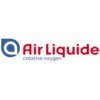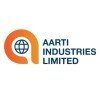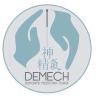Filter interviews by
Lonsen Kiri Chemical Industries Shift Incharge Interview Questions, Process, and Tips
Lonsen Kiri Chemical Industries Shift Incharge Interview Experiences
1 interview found
I applied via Recruitment Consultant and was interviewed in May 2021. There was 1 interview round.
Interview Questionnaire
5 Questions
- Q1. What are the solvent?
- Ans.
Solvents are substances that dissolve other substances to form a solution.
Solvents can be organic or inorganic.
Examples of organic solvents include ethanol, acetone, and benzene.
Inorganic solvents include water and ammonia.
Solvents are commonly used in industries such as pharmaceuticals, paints, and cleaning products.
- Q2. What is solvent recovery?
- Ans.
Solvent recovery is the process of separating and purifying solvents from a mixture for reuse.
Solvent recovery is important for reducing waste and saving costs in industries that use solvents.
It involves distillation, evaporation, or other separation techniques to isolate the solvent.
Recovered solvents can be reused in the same process or sold to other industries.
Examples of industries that use solvent recovery include...
- Q3. What is the difference between packed colum and tray column?
- Ans.
Packed columns use packing material to increase surface area for separation, while tray columns use trays to create stages for separation.
Packed columns have higher efficiency but lower capacity compared to tray columns.
Tray columns are more suitable for high pressure and high liquid load applications.
Packed columns are commonly used in distillation of low viscosity fluids, while tray columns are used for high viscosit...
- Q4. Why diameter required is large in vaccum distillation?
- Ans.
Large diameter is required in vacuum distillation to reduce pressure drop and prevent clogging.
Reduced pressure in vacuum distillation causes lower boiling points and higher vapor velocities.
Large diameter helps to reduce pressure drop and prevent clogging of the equipment.
Smaller diameter can cause higher pressure drop and slower vapor velocities, leading to reduced efficiency.
Large diameter also allows for better hea...
- Q5. What is doubl mechanical seal?
- Ans.
A double mechanical seal is a type of seal that uses two sets of sealing surfaces to prevent leakage in pumps and other equipment.
Consists of two sets of sealing surfaces
Used to prevent leakage in pumps and other equipment
Provides an extra layer of protection against leaks
Commonly used in industries such as oil and gas, chemical, and pharmaceutical
Examples include cartridge seals and split seals
Interview Preparation Tips
Top trending discussions






Interview questions from similar companies

I applied via Recruitment Consulltant and was interviewed before Mar 2023. There was 1 interview round.
(2 Questions)
- Q1. Types of unit operations?
- Ans.
Unit operations are individual steps in a chemical process used to transform raw materials into desired products.
Mixing: combining two or more substances to create a homogenous mixture (e.g. blending ingredients in baking)
Separation: dividing a mixture into its individual components (e.g. distillation to separate alcohol from water)
Heat Transfer: exchanging heat between substances to change temperature or phase (e.g. h...
- Q2. Difference between Unit operations & reactions?
- Ans.
Unit operations involve physical changes in materials, while reactions involve chemical transformations.
Unit operations involve physical processes like filtration, distillation, and crystallization.
Reactions involve chemical processes like oxidation, reduction, and hydrolysis.
Unit operations focus on separating, mixing, or changing the physical state of materials.
Reactions focus on transforming the chemical composition...

I applied via Recruitment Consulltant and was interviewed before Mar 2023. There was 1 interview round.
(2 Questions)
- Q1. Types of unit operations?
- Ans.
Unit operations are individual steps in a chemical process used to transform raw materials into desired products.
Mixing: combining two or more substances to create a homogenous mixture (e.g. blending ingredients in baking)
Separation: dividing a mixture into its individual components (e.g. distillation to separate alcohol from water)
Heat Transfer: exchanging heat between substances to change temperature or phase (e.g. h...
- Q2. Difference between Unit operations & reactions?
- Ans.
Unit operations involve physical changes in materials, while reactions involve chemical transformations.
Unit operations involve physical processes like filtration, distillation, and crystallization.
Reactions involve chemical processes like oxidation, reduction, and hydrolysis.
Unit operations focus on separating, mixing, or changing the physical state of materials.
Reactions focus on transforming the chemical composition...

Interview Questionnaire
4 Questions
- Q1. ASU basics
- Q2. Turbine details
- Q3. Good attitude must preferred
- Q4. Compressor principal & basics
Lonsen Kiri Chemical Industries Interview FAQs
Tell us how to improve this page.
Interview Questions for Popular Designations
- Shift Engineer Interview Questions
- Production Shift Incharge Interview Questions
- Shift Incharge Engineer Interview Questions
- Shift Supervisor Interview Questions
- Electrical Shift Engineer Interview Questions
- Electrical Shift Incharge Interview Questions
- Shift Manager Interview Questions
- Shift Officer Interview Questions
- Show more
Interview Questions from Similar Companies
Lonsen Kiri Chemical Industries Shift Incharge Reviews and Ratings
based on 3 reviews
Rating in categories
|
Shift Incharge
27
salaries
| ₹3 L/yr - ₹5.5 L/yr |
|
Production Supervisor
15
salaries
| ₹1.5 L/yr - ₹3 L/yr |
|
Instrumentation Technician
13
salaries
| ₹2.5 L/yr - ₹3.3 L/yr |
|
Production Shift Incharge
12
salaries
| ₹3.1 L/yr - ₹6.7 L/yr |
|
Executive
10
salaries
| ₹4.1 L/yr - ₹7.2 L/yr |

Pidilite Industries

UPL

Tata Chemicals

BASF
- Home >
- Interviews >
- Lonsen Kiri Chemical Industries Interview Questions >
- Lonsen Kiri Chemical Industries Shift Incharge Interview Questions













